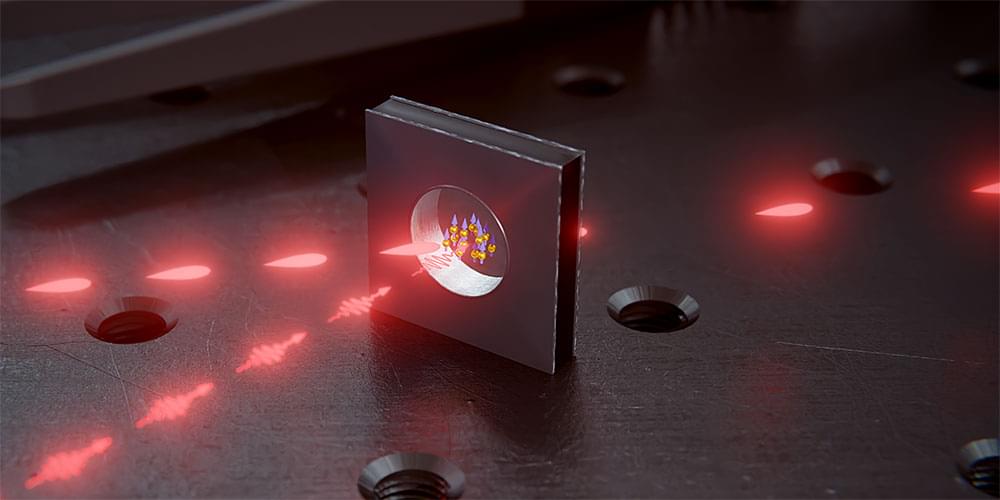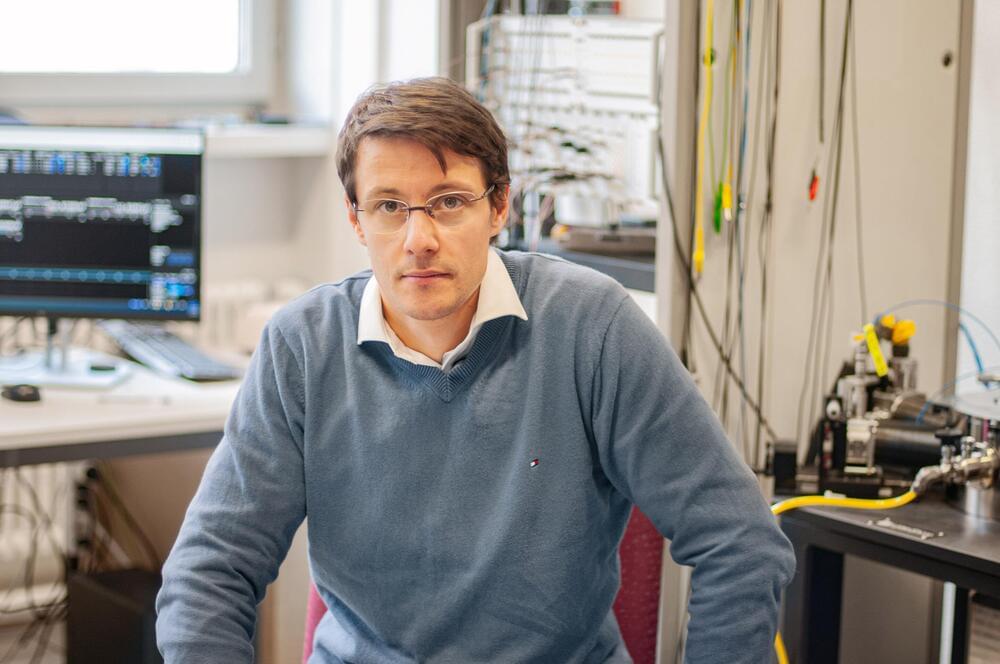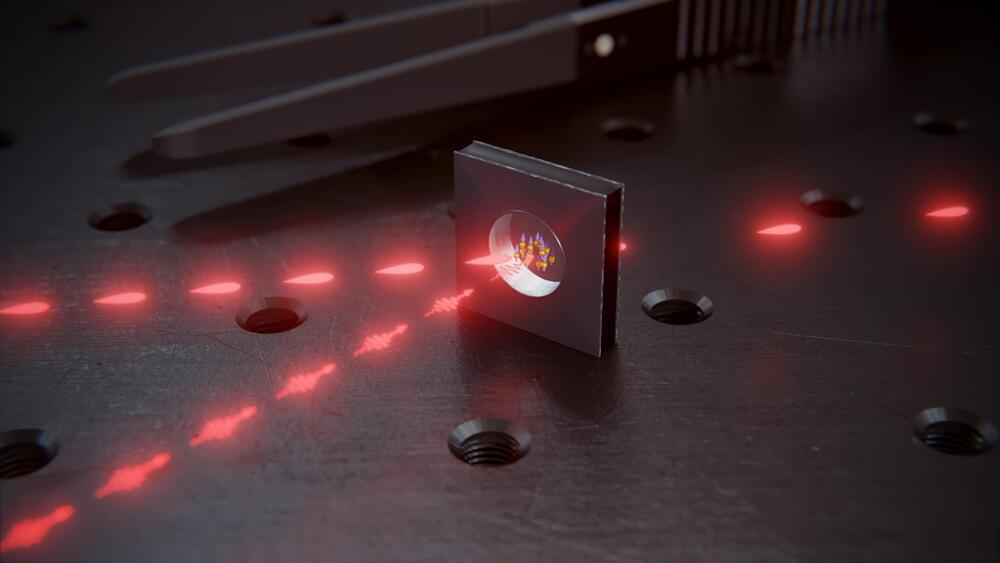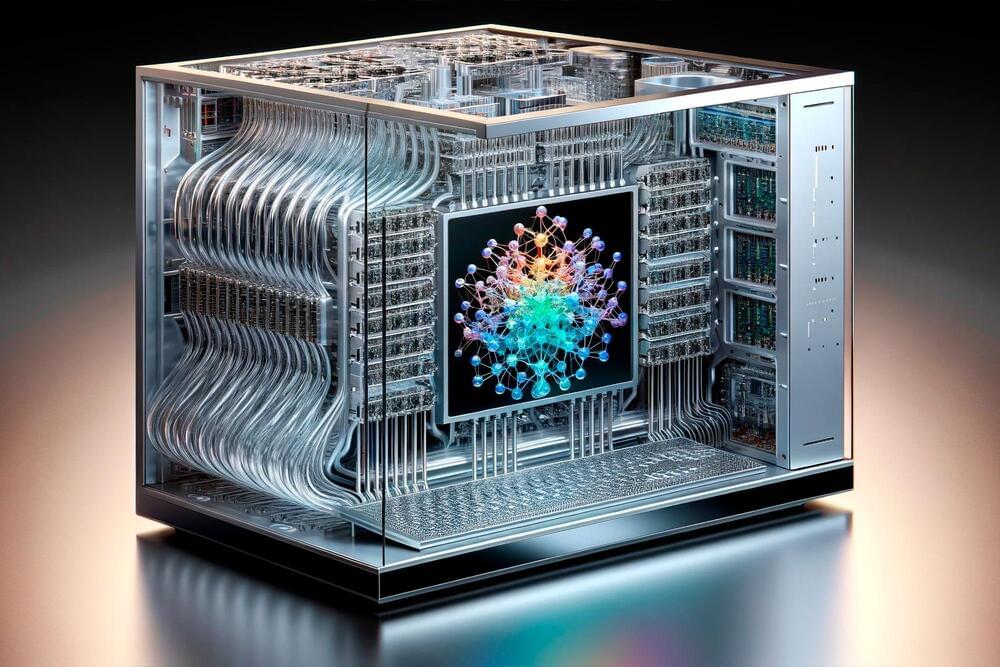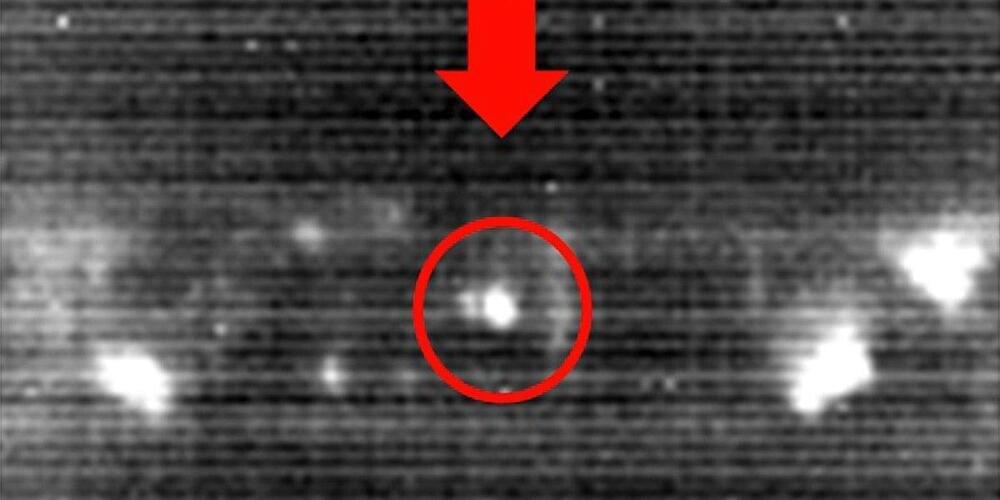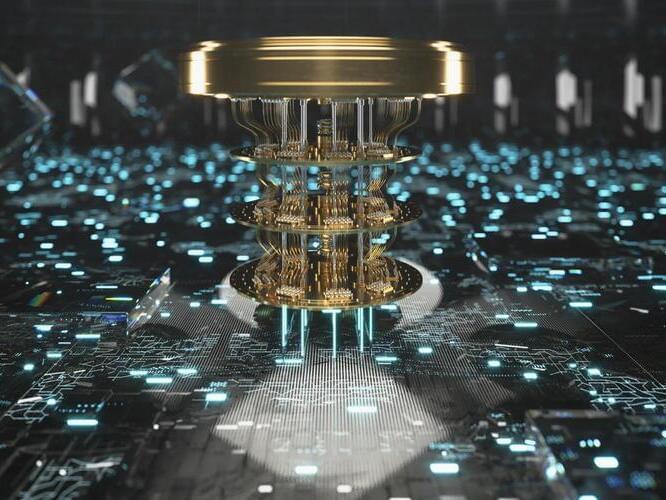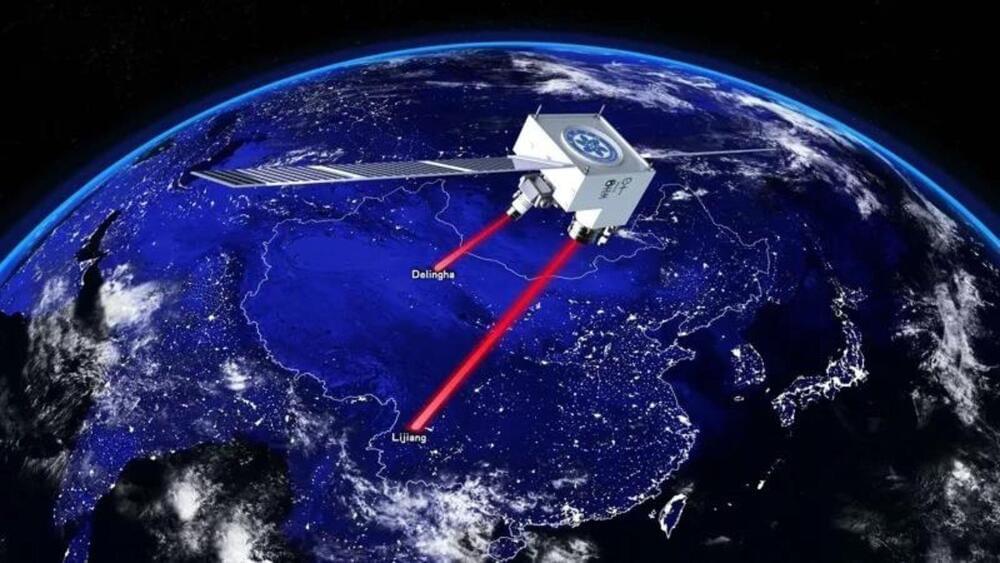Jan 22, 2024
Mass-Producible Miniature Quantum Memory
Posted by Dan Breeden in categories: computing, encryption, mobile phones, quantum physics
PRESS RELEASE — It is hard to imagine our lives without networks such as the internet or mobile phone networks. In the future, similar networks are planned for quantum technologies that will enable the tap-proof transmission of messages using quantum cryptography and make it possible to connect quantum computers to each other.
Like their conventional counterparts, such quantum networks require memory elements in which information can be temporarily stored and routed as needed. A team of researchers at the University of Basel led by Professor Philipp Treutlein has now developed such a memory element, which can be micro-fabricated and is, therefore, suitable for mass production. Their results were recently published in the scientific journal Physical Review Letters.
